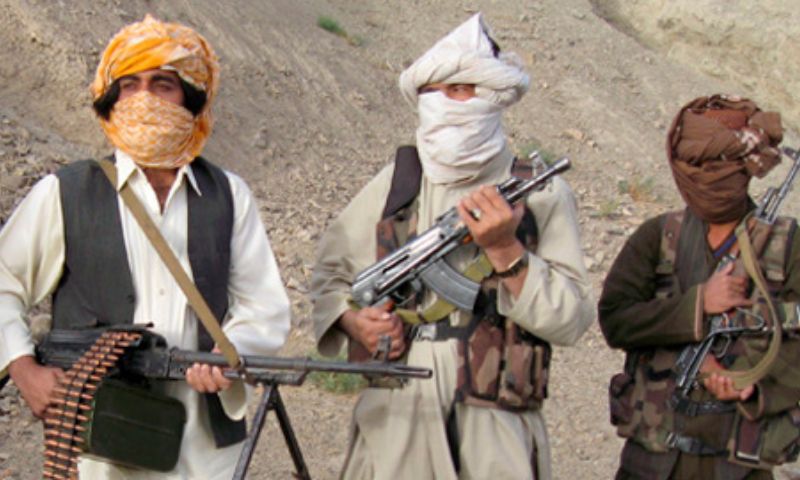Over the past fifteen years, Pakistan has grappled with the relentless and deadly terror attacks orchestrated by the Tehrik-i-Taliban Pakistan (TTP), resulting in the loss of over 80,000 lives, including the horrific 2014 attack on the Army Public School (APS) in Peshawar. Despite these heinous crimes, Pakistan has consistently demonstrated its commitment to seeking a negotiated settlement, but in return only faced deception and increased terrorist attacks by the TTP.
Past Peace Deals
Since the emergence of the TTP in 2007, Pakistan has engaged in peace talks with the group, signing several peace agreements such as the Shakai accord in 2004, Sararogha accord in 2005, Waziristan accord in 2006, and the Nizam-e-Adl agreement in 2009. Despite Pakistan’s sincere efforts for an amicable solution, none of these agreements endured, and each accord was short-lived due to continuous violations by the TTP, followed by a surge in terrorist violence. These agreements, rather than fostering peace, served as opportunities for the TTP to regroup and reorganize.
Post-US Withdrawal Reconciliation and Deception
Most recently, Pakistan, after the withdrawal of the US forces from Afghanistan, initiated reconciliation talks with the TTP. The TTP, initially a by-product of the US invasion, had lost its pretext for fighting within Pakistan. However, the TTP, rather than reciprocating Pakistan’s goodwill by releasing TTP militants and settling with its leadership for peaceful settlement, deceived the nation by amassing fighters from Afghanistan, regrouping during the reconciliation process. The TTP’s actions led to a resurgence of terrorism within Pakistan, effectively sabotaging the peace process.
TTP fighters emerged in Swat, followed by an increasing presence in other merged tribal districts, leading to harassment of local populations for food and shelter. This sparked large-scale protests in Swat, Bajaur, Waziristan, and other tribal districts, prompting the Pakistani government and law enforcement agencies (LEAs) to halt further ingress of terrorists from Afghanistan and eliminate those who had already entered Pakistan.
The resurgence of terrorism in Pakistan by the TTP occurred under the guise of reconciliation, leading to numerous terrorist attacks within the country. Contrary to Pakistan’s goodwill, sincerity, and earnest efforts for peace, the TTP increased terror attacks and, driven by its opposition to the notion of a Pakistani state, posed a significant threat to national sovereignty—a red line for Pakistan. Throughout the reconciliation process, the TTP consistently escalated its terms for a truce, revealing a lack of genuine commitment to peace. It became evident that the insurgents were using talks as a strategy to reclaim lost ground rather than a sincere pursuit of peace.
Questioning IAG Intentions
The TTP blatantly uses Afghan soil for orchestrating attacks in Pakistan, a fact acknowledged by various international entities, including UN/US/Western security organizations and think tanks. Pakistan has consistently shared intelligence reports of TTP activities on Afghan soil against Pakistan and the presence of training camps with Afghan officials. Yet, the Interim Afghan Government (IAG) denies these reports, raising doubts about their intentions.
Most concerning is the involvement of Afghan nationals in TTP attacks on Pakistan, carrying out suicide bombings. Despite Pakistan’s efforts to address this issue through intelligence sharing and formal requests, the IAG does not seem to take this significant concern seriously and persists in its inconsistent stance on the TTP. Their reluctance to act against Afghan nationals in TTP ranks raises questions about their commitment to regional stability.
Pakistan respects the fatwa issued by Afghan Darul-Ifta, prohibiting Afghan nationals from engaging in fighting outside Afghanistan. However, despite this prohibition, Afghan nationals continue to be part of TTP activities. The suicide attack in Jani Khel (Bannu) on November 26 was carried out by an Afghan national, leading Pakistan to formally request the Afghan government to hand over the perpetrators.
The Afghan Taliban claims that the TTP assisted them in their fight against the US, prompting the question of why they do not consider the fact that Pakistan faced blame and condemnation from the US/West for supporting the Afghan Taliban for two decades.
If the Taliban assert their commitment to upholding values and traditions in dealing with the TTP, there is an expectation that they should also honor the same values embedded in Pashtunwali (Nang, Namoos, and Melmastia) as practiced by Pakistan, both its government and people, for an extended period.
Afghanistan’s Dual Role
If the Interim Afghan Government (IAG) is concerned about TTP ranks potentially joining ISKP and posing a threat to its security, it should extend the same consideration to its neighboring Muslim brethren in Pakistan. The IAG is actively combating ISKP within Afghanistan, denouncing them as Khawariji. Consequently, it raises the question of why a similar approach is not adopted towards the TTP, considering it also embodies a Khawariji fitna.
Pakistani Ulema unanimously prohibit any armed struggle within Pakistan by any faction, and it is Pakistan’s desire that the IAG fulfills its moral obligation to prevent the use of Afghan soil by the TTP against Pakistan, as agreed upon in the Doha agreement. The region seeks lasting peace, and to achieve peace, the IAG must actively cooperate with Pakistan in addressing the TTP issue. Pakistan, as a friend of Afghanistan, desires a peaceful Afghanistan, and addressing Pakistani concerns is crucial for realizing the dividends of peace in the region.
Illegal Refugees and TTP Concerns
Furthermore, the issue of illegal refugees is distinct from the TTP challenge, and Pakistan’s decisions are a result of a careful and deliberate process aimed at safeguarding its national interests. The Interim Afghan Government (IAG) must conscientiously consider whether it values the well-being of 225 million Pakistanis or the actions of a few thousand terrorists jeopardizing relations with Pakistan. It is crucial for the IAG to acknowledge that the Pakistani government, armed forces, and its citizens stand united in their stance against the TTP threat and are prepared to address it on their own terms.
The IAG should prioritize resolving Pakistani concerns, not just as a neighboring nation or a Muslim brethren country, but as a nation that has received unwavering support from Pakistan throughout various challenges.
Pakistan and Afghanistan share historical, cultural, and geographical ties that necessitate cooperation in addressing common security threats. The IAG’s commitment to regional stability requires addressing Pakistani concerns and preventing the TTP from using Afghan soil for attacks. A united front against terrorism will pave the way for enduring peace, benefiting both countries and contributing to stability in the broader region.























